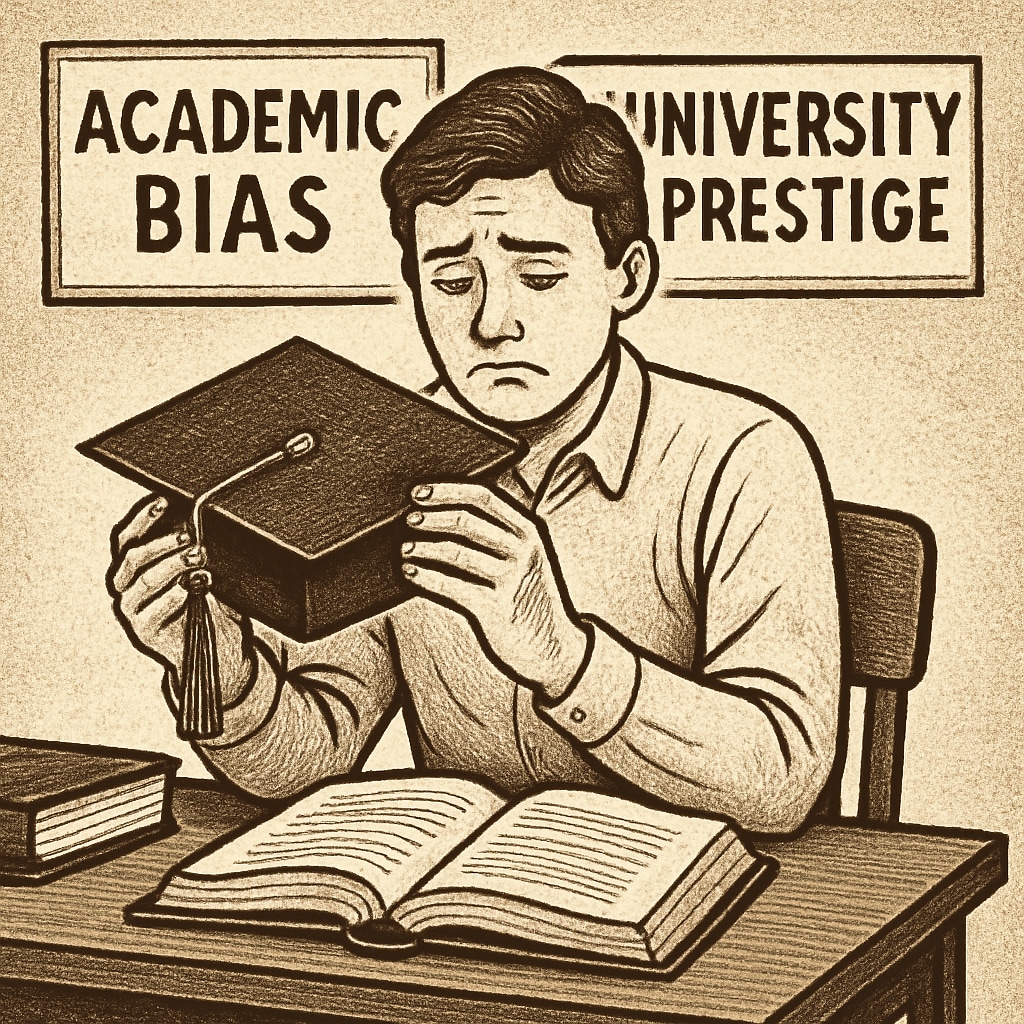The issue of academic bias, university prestige, and personal worth continues to challenge students worldwide. In societies where university rankings define an individual’s capabilities, students often struggle to find their true value beyond institutional labels. This article delves into the roots of university discrimination, its impact on self-worth, and the necessity of shifting toward ability-based educational frameworks to ensure a healthier self-perception in young learners.

Understanding Academic Bias and Its Roots
Academic bias stems from the disproportionate emphasis placed on university reputations. Institutions with “elite” status are often perceived as the sole producers of competent graduates, while others are undervalued—creating prejudices among employers, educators, and even students themselves. This bias is deeply rooted in societal norms that equate success with association to prestigious universities, as opposed to individual skills and achievements.
For example, a graduate from a top-tier institution may easily secure job opportunities, while equally capable individuals from lesser-known universities face hurdles. The impact of this systemic bias extends far beyond employment; it shapes the self-worth of students, often leading them to internalize societal judgments about their academic backgrounds.
As a result, many students and professionals feel trapped, believing their achievements are limited by the status of their alma mater rather than their actual capabilities.
How University Prestige Affects Self-Worth
When students are judged by their university logos rather than their personal efforts, their sense of self-worth can diminish. This phenomenon is particularly evident during the K12 education phase, where competitive college admissions amplify the pressure to secure spots in elite institutions. Students begin to equate their worth with the acceptance or rejection from these institutions, fostering unhealthy comparisons and insecurities.
For instance, a student denied admission to a top-ranked university may question their intelligence or potential, despite their exceptional performance in other areas. This harmful mindset can persist throughout their academic and professional life, affecting their mental health and confidence.
Moreover, the emphasis on prestige often overshadows the importance of actual skills and abilities, leaving students unprepared to face real-world challenges. By valuing institutional reputation over individual competence, society risks creating a workforce that prioritizes credentials over problem-solving skills.

Shifting Toward Ability-Based Education Systems
To combat academic bias and foster a positive sense of self-worth among students, it is crucial to transform education systems to focus on ability rather than affiliation. Here are some actionable steps educators and policymakers can take:
- Introduce holistic evaluation methods: Move away from reliance on standardized tests and university admissions as sole indicators of success. Instead, assess students based on their creativity, problem-solving abilities, teamwork, and resilience.
- Promote skill-based learning: Incorporate practical, hands-on experiences into curriculums that emphasize critical thinking and adaptability. This will help students develop real-world competencies that are valued regardless of their educational institution.
- Educate against prestige myths: Raise awareness about the dangers of idolizing university reputations. Highlight examples of successful individuals who thrived based on their skills, not their alma mater.
- Encourage equal opportunities: Ensure employers and educators provide fair chances to all graduates by focusing on performance during interviews and projects rather than the institutions listed on their resumes.
These reforms can help students build confidence in their abilities and redefine their self-worth outside the confines of academic bias.
Reclaiming Self-Worth in a Biased Society
Ultimately, breaking free from university-driven discrimination requires a collective effort. Students need to understand that their value is not tied to a school name but rather to their unique talents and character. Educators and parents play a pivotal role in reinforcing this belief, ensuring students grow with a healthy perception of their self-worth.
Moreover, society as a whole must learn to judge individuals based on their contributions rather than their credentials. By shifting focus to what people can do rather than where they studied, we can create a more inclusive and equitable world.
In conclusion, the fight against academic bias is not just about reforming education systems but also about reshaping societal attitudes. When students are valued for their skills and individuality, they can thrive without the shadow of university prestige.
Readability guidance: This article uses concise paragraphs, clear transitions, and helpful lists to summarize key points. Images placed appropriately illustrate the main themes discussed. Passive voice and long sentences are minimized to ensure clarity and engagement.


